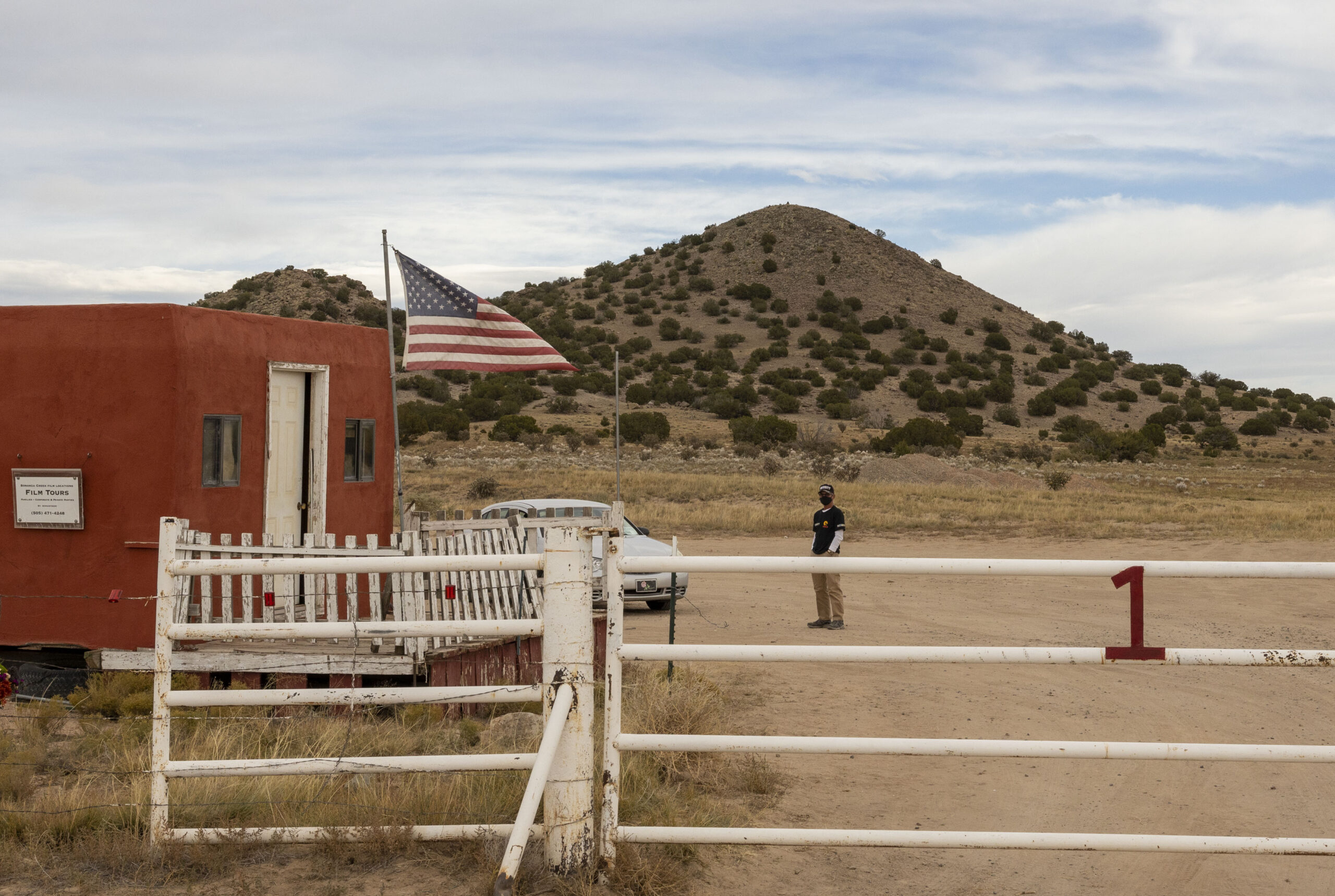
www.dailywire.com
‘Rust’ Filmmaker Breaks Silence Following Fatal Shooting, Talks Second Filming
“Rust” filmmaker Joel Souza finally broke his silence and spoke out publicly for the first time since the 2021 fatal shooting on the New Mexico set that left cinematographer Halyna Hutchins dead and him injured.
Speaking to Vanity Fair, the 51-year-old director said that the shooting “ruined” the man he was as he recalled how it felt to be shot that day on the western film set where a gun Alec Baldwin was holding discharged a bullet that hit Hutchins and Souza during rehearsals. Baldwin has always maintained that there was “no trigger pull.”
The filmmaker said that being shot “felt like a horse kicked me in the shoulder or someone hit me with a bat. The whole right side of my body went numb, completely numb, but it also hurt excruciatingly at the same time, if that makes sense.”
Joel Souza, the ‘Rust’ director who Alec Baldwin shot during a rehearsal of a scene, is breaking his silence on the fatal day that took the life of cinematographer Halyna Hutchins https://t.co/dS3AyoBZuQ
— Deadline Hollywood (@DEADLINE) August 15, 2024
“It’s just like everything went tingly and numb but hurt like hell all at once,” he added. “And I staggered back and was either on my knees or on my a**—and just…yelling. I don’t even know what the hell I was yelling.”
Tickets for “Am I Racist?” are on sale NOW! Buy here for a theater near you.
“It’s bizarre to have been shot,” Souza continued. “And then, who was holding the gun? That’s bizarre. I had this weird thought, like, God, I remember watching ‘The Hunt for Red October’ in the movie theater when I was a kid. It’s like your older self whispers to your younger self, ‘Hey, that guy…someday…’ Life can take you down some very bizarre roads.”
But Souza said he was not grateful to have survived after Hutchins died.
“When I tell someone it ruined me, I don’t mean in the sense that people might generally think,” Souza said. “I don’t mean that it put my career in ruins. I mean, internally, the person I was just went away. That stopped.”
“I remember specifically going to sleep that night and hoping I didn’t wake up the next morning. I hoped I would just bleed out overnight because I didn’t want to be around anymore,” he added. “It was a very difficult moment. I remember just thinking, ‘Maybe I’ll just sort of bleed to death — that would suit me just fine.'”
He also talked about returning to the film set and finishing the film Hutchins was shooting, making it clear the fatal scene she had shot has vanished “in its entirety.”
“Gone. Not just that, but also a few things leading up to it,” Souza said. “Everything needed to be entirely reconceived there. There were a few things that came before that now wouldn’t make story sense. So we just sort of eliminated it and came up with something entirely different.”
“I’m not going back to that,” he added. “I’m glad you asked. I don’t want anyone who ever does see this to be waiting for that. No one ever pushed to keep anything like that.”
Related: SAG-AFTRA Defends Alec Baldwin In ‘Rust’ Shooting As Actor Prepares To Defend Himself Against New Charge













